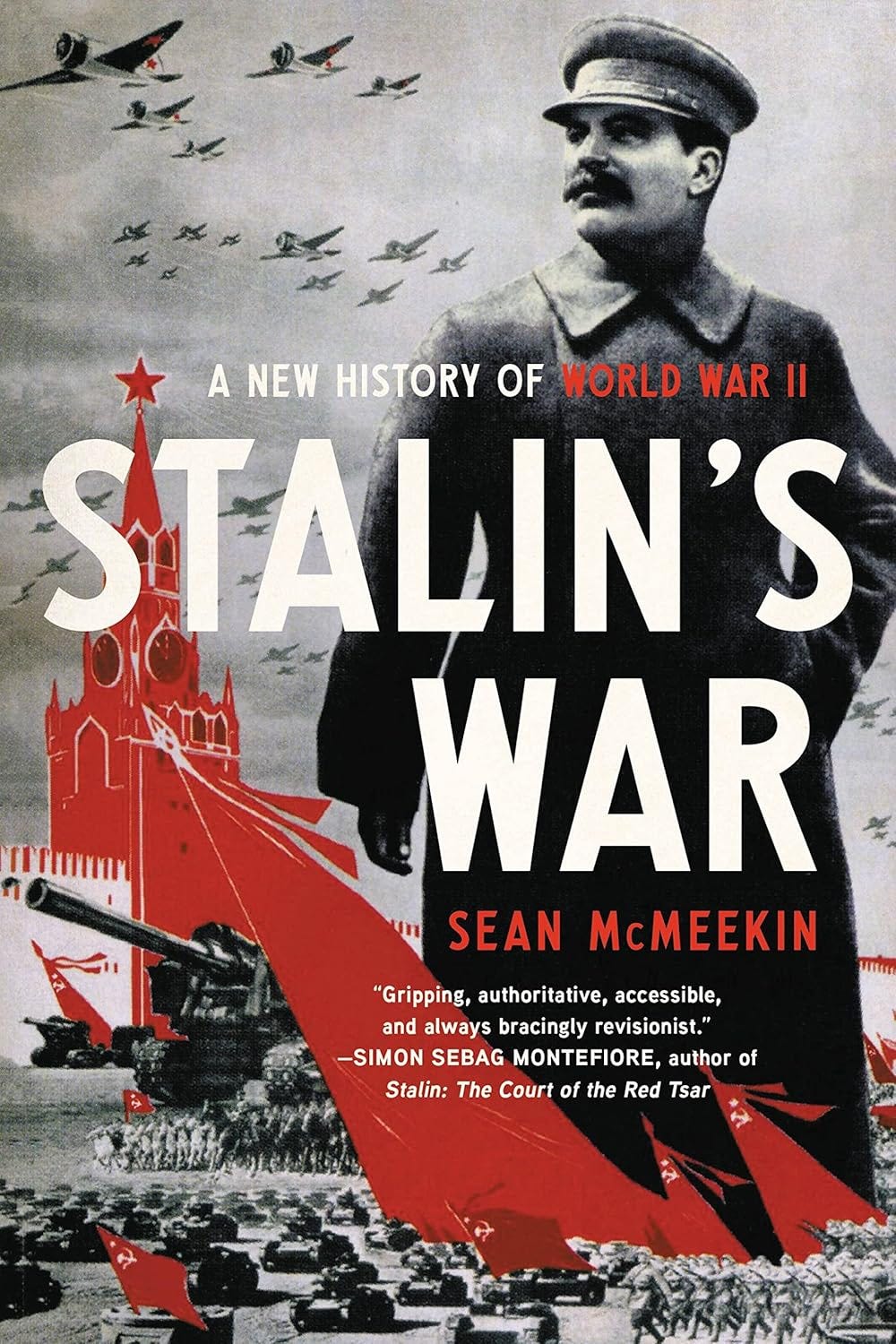Book Review: Stalin's War
Subjecting a third of the world to communist oppression while we patted ourselves on the back.
Who received the spoils of WW2? Who was the main victor? Sean McMeekin argues persuasively that Stalin was objectively the person most enriched, and his empire enlarged. He even got Poland, ostensibly the reason WW2 started in the first place.
Yet, Hitler is always the main villain when describing the global eruption of conflict, the main instigator. While he is certainly a villain, he had nothing to do with the wars in Asia, and he had only invaded Poland after agreeing with Stalin to split up the country like a group of kids claiming their rooms for the week at a vacation cabin. And Russia’s share was actually supposed to be larger than Germany’s.
German military speed and competence secured a larger portion of territory than initially planned. In fact, German military speed and competence in Poland and then in France frustrated Stalin’s long-term foreign policy goals.
He wanted Europe embroiled in a long war of attrition, with the capitalist powers beating each other to pulp, exhausted to the brink as in the First World War, so the Soviets could march in unopposed and bathe Europe in the glories of Communism.
“Let them fight,” sums up Stalin’s goal. It was a war Stalin wanted. Hitler certainly didn’t want to fight France or Britain and expected them to back down again. Yet it’s also clear that, given British and French early responses, they didn’t really want to fight the war either. It didn’t serve their interests.
As Germany gobbled up France, Stalin cursed French and British incompetence. Despite being Hitler’s ally, and literally fueling the conquest with 4,000 tons of Soviet oil per day delivered to German Panzers, Stalin hated that Hitler smashed the allies so quickly. He wanted everyone to bleed.
And so the book is aptly titled Stalin’s War. While it was not exactly what he wanted, the outcome was close enough, with Soviet influence smothering half of Europe. Stalin was able to claim territory in the slipstream of German victories and in the rubble of German defeats. He played both sides, and the only reason he wasn’t burned was because of American naivety.


